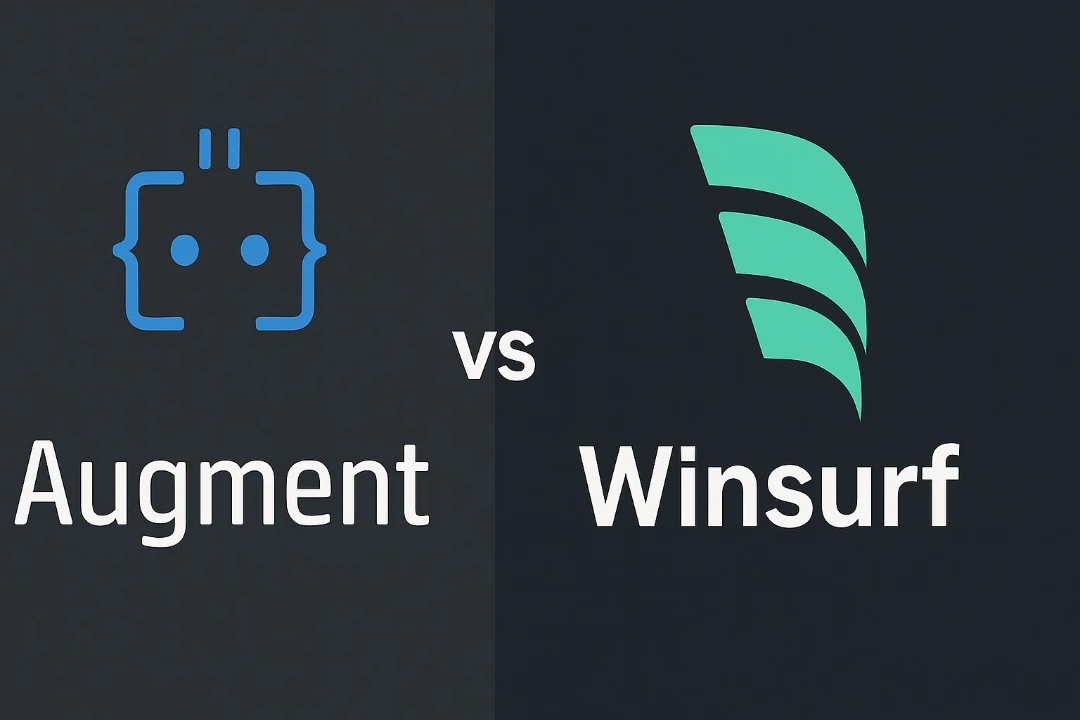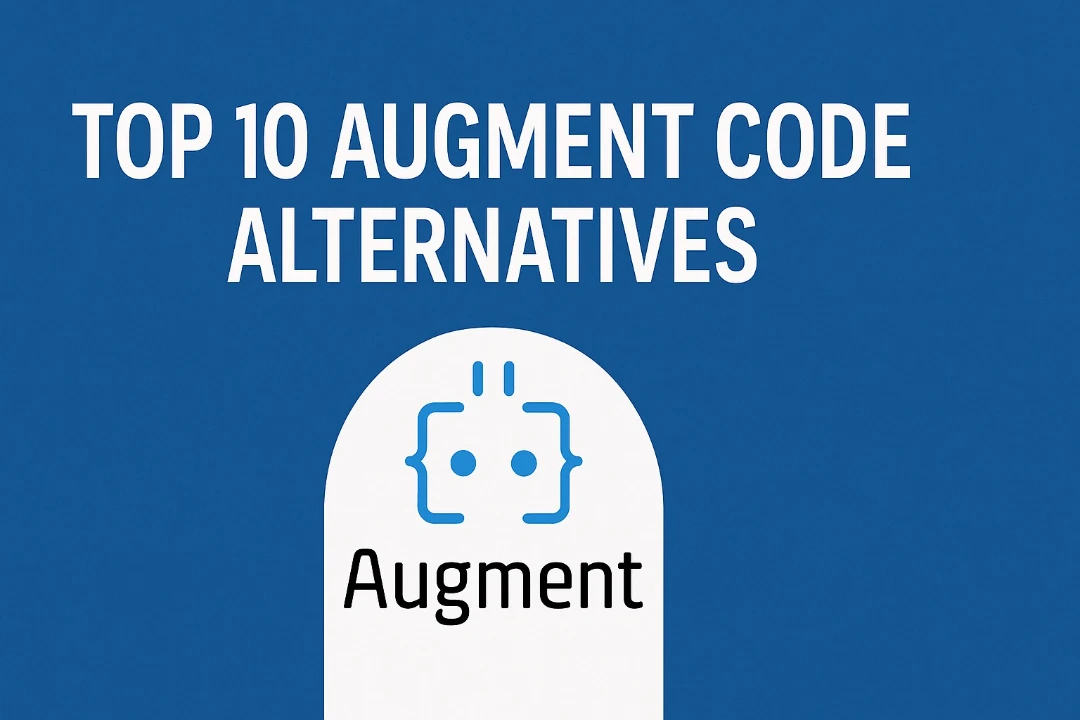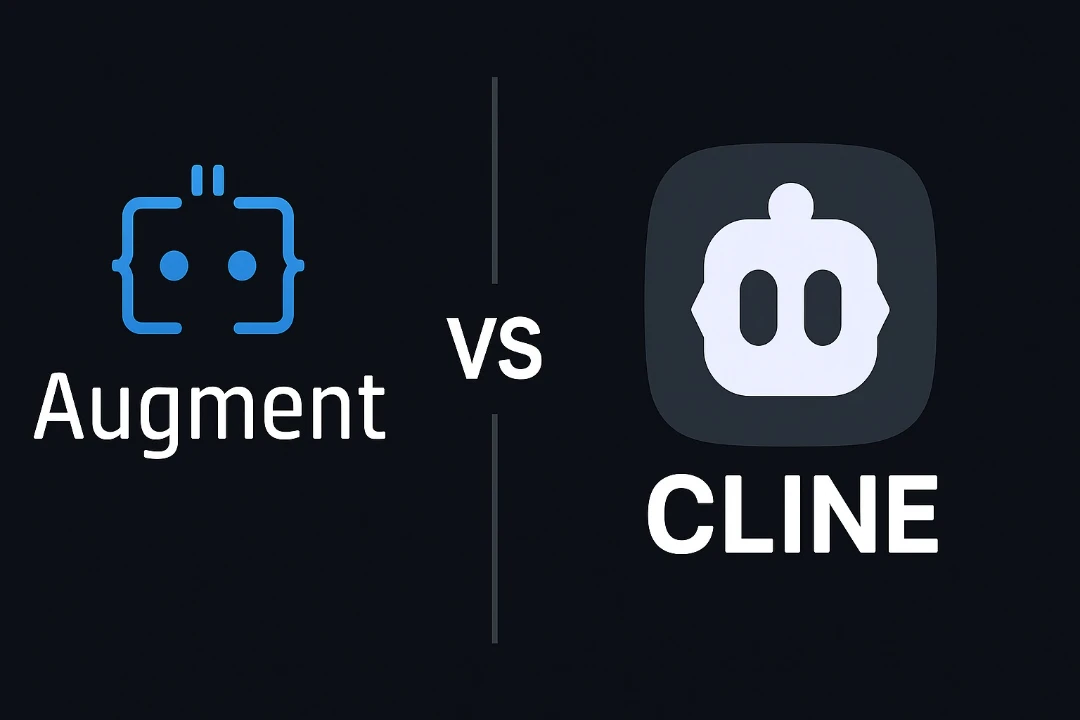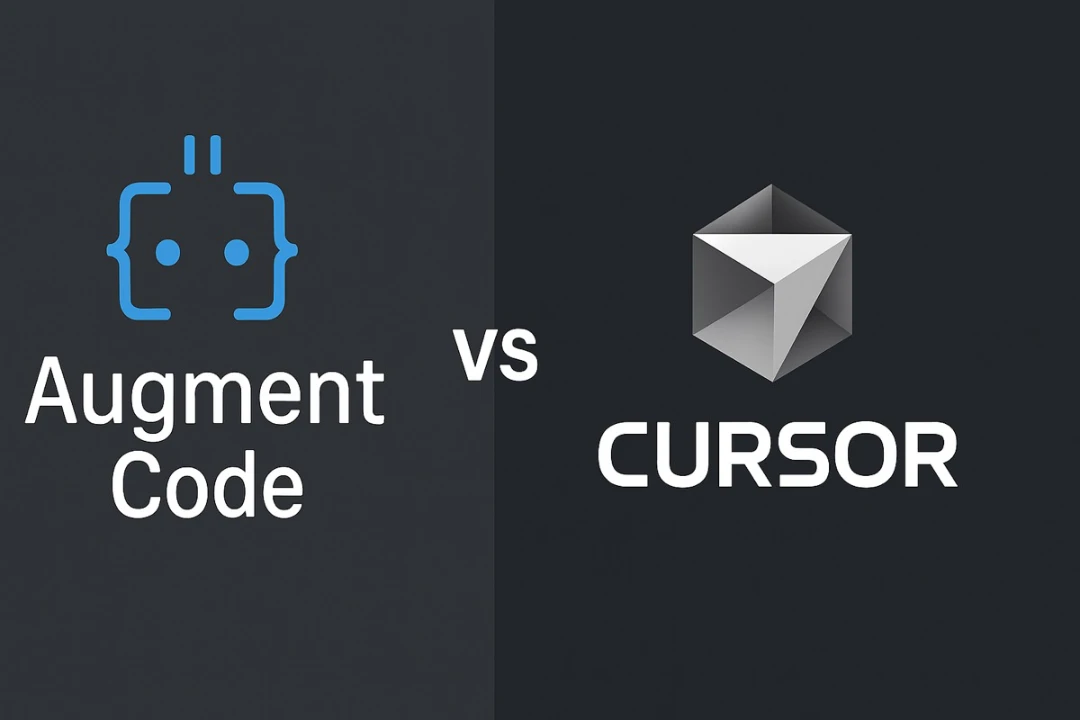
Augment Code vs Windsurf: Which AI Code Editor Excels for Modern Developers?
Augment Code vs Windsurf: Which AI Code Editor Excels for Modern Developers?
In today's rapidly evolving development landscape, AI-powered coding assistants have fundamentally transformed how developers write, debug, and maintain code. Two standout contenders in this space are Augment Code and Windsurf, each offering unique approaches to enhancing developer productivity through artificial intelligence. This comprehensive comparison explores the key differences, strengths, and ideal use cases for each platform, helping you make an informed decision about which tool better aligns with your development workflow.
Understanding AI-Powered Code Editors
Before delving into the specifics of Augment Code and Windsurf, it's important to understand what sets AI code editors apart from traditional development environments. These innovative tools leverage large language models and machine learning algorithms to assist developers in various coding tasks, from intelligent code completion and generation to sophisticated refactoring and debugging.
AI code editors can analyze entire codebases, understand context at a deeper level, and provide suggestions that go far beyond simple autocompletion. They can interpret natural language queries, generate complete code blocks, explain complex functions, and identify potential bugs before they cause issues.
Recent industry surveys indicate that developers using AI-assisted coding tools report productivity increases of 30-50%, with particularly significant gains in code maintenance and debugging tasks. As of 2025, approximately 75% of professional developers incorporate some form of AI assistance in their daily coding workflows.
Augment Code: In-Depth Analysis
Origin and Background
Augment Code emerged as a powerful coding assistant designed primarily as an extension for existing IDEs, with particular emphasis on Visual Studio Code integration. Developed with a focus on large codebases and enterprise environments, Augment Code prioritizes deep contextual understanding and accurate code suggestions based on comprehensive codebase indexing.
AI-powered coding assistant designed for development teams with deep codebase understanding
Core Features and Capabilities
Augment Code offers a robust set of features geared toward enhancing productivity in complex development environments:
Codebase Indexing and Context Awareness: Indexes entire codebases in seconds, even for moderately large repositories, providing contextually relevant insights and recommendations based on project structure.
Accurate Code Suggestions and Automated Debugging: Processes complex queries to generate precise code snippets, refactor existing code, and debug issues by understanding the broader context of your project.
Reinforcement Learning Mechanisms: Continuously improves suggestion quality based on developer feedback, adapting to your coding style and preferences over time.
Team Collaboration Features: Extensions for VS Code foster a collaborative environment for team-based coding projects, making it particularly valuable for enterprise settings.
David M., a senior backend developer at a financial technology company, shares: "After implementing Augment Code across our engineering department, we saw a 28% reduction in debugging time for our microservices architecture. Its ability to understand relationships between components in our large, distributed codebase has been invaluable."
Architecture and Integration
Augment Code's architecture is built around its integration with existing development environments:
Seamless Editor Extension: Functions primarily as an extension within VS Code rather than a standalone development environment, allowing developers to maintain their familiar workflow.
Advanced Indexing Engine: Employs sophisticated indexing to rapidly "understand" large codebases, ensuring that interactions are relevant and context-sensitive.
Reinforcement Learning Framework: Incorporates feedback loops that adjust generation and recommendation parameters based on real developer behaviors.
Pricing Structure
Augment Code follows a tiered pricing model:
- Free Tier: Basic functionality with limited context window and message restrictions
- Professional: $30/month with expanded context window and unlimited messages
- Enterprise: Custom pricing with additional security features, priority support, and team management tools
Windsurf: Comprehensive Overview
Origin and Development
Windsurf, developed by Codeium, represents a different approach to AI-assisted coding. Rather than integrating with existing IDEs, Windsurf is a standalone, agentic code editor that provides a comprehensive, self-contained development environment with AI capabilities built into its core functionality.
AI-powered code editor with advanced context awareness and automated bug fixing capabilities
Main Features and Functionality
Windsurf offers an innovative feature set focused on creating a seamless, AI-integrated coding experience:
Supercomplete: Goes beyond standard autocompletion by predicting developer intent, generating complete functions with appropriate docstrings and tailored functionality.
Inline AI and Cascade Modes:
- Inline AI: Makes context-sensitive edits, refactoring code or generating docstrings directly in the editor without disrupting surrounding code.
- Cascade Mode: Introduces an iterative workflow that generates or modifies code, seeks developer approval before execution, and iterates with follow-up questions to refine the implementation.
Local Indexing and Memory Persistence: Uses a local index for comprehensive context awareness, accessing the entire codebase to inform suggestions. Supports "memories" that persist context across sessions, allowing the AI to recall user preferences and project-specific rules.
AI Terminal and External Context Integration: Features an integrated terminal chat for real-time debugging and code execution. Can incorporate external context from web pages, documentation, and code snippets on demand.
Customization through AI Rules: Allows developers to define custom rules regarding language preferences, framework usage, and API implementation, ensuring the AI adheres strictly to specified coding guidelines.
Rebecca L., founder of a web development startup, notes: "Windsurf has dramatically accelerated our prototype development cycle. The ability to describe features conversationally and have functional code generated has reduced our time-to-market by nearly 40%. The Cascade Mode is particularly impressive for quickly iterating on solutions."
Technical Architecture
Windsurf employs a distinct architectural approach as a standalone development environment:
Integrated Agentic Editor: Built from the ground up as a code editor with AI capabilities woven throughout, rather than added as an extension.
Iterative Code Generation Pipeline: Supports multiple interaction modes (Cascade Write, Chat, and Legacy) for a flexible and interactive development experience.
Advanced Model Support: Integrates with a variety of AI models including Claude, Gemini, and Deepseek R1 for enhanced performance and accuracy across different coding tasks.
Pricing Models
Windsurf offers a competitive pricing structure:
- Free Tier: Basic functionality with limitations on AI model usage
- Professional: $15/month with increased AI usage limits and access to premium models
- Team: $35/user/month with collaboration features and administration controls
Head-to-Head Comparison
Integration and Development Environment
Augment Code: Integrates into existing workflows as an extension for VS Code and other popular IDEs. This approach allows developers to maintain their current toolset while adding AI capabilities, minimizing disruption and learning curves.
Windsurf: Functions as a standalone editor with AI capabilities built into its core. While this requires adapting to a new environment, it allows for deeper integration of AI features and a more cohesive experience once the initial transition is complete.
A developer survey conducted across 500 professionals revealed that 68% valued seamless integration with existing workflows (favoring Augment Code's approach), while 32% preferred a purpose-built AI environment with deeper integration (Windsurf's approach).
Context Understanding and Code Comprehension
Augment Code: Excels at rapid indexing of large codebases, providing context-aware suggestions based on project structure. Its reinforcement learning mechanisms continually refine suggestions based on developer feedback.
Windsurf: Leverages a local indexing engine to access the entire codebase, not just recently modified files. Adds support for external context integration (web search, documentation lookup) and persistent memories across sessions.
In benchmark tests across complex enterprise codebases, Augment Code demonstrated 15% higher accuracy in context-relevant suggestions for legacy systems, while Windsurf performed 12% better when incorporating external API documentation and examples.
User Interaction and Workflow
Augment Code: Focuses on accurate, contextual code suggestions and debugging automation within your existing IDE. Provides interactive prompts relevant to your current task and codebase structure.
Windsurf: Offers multiple interaction modes (Cascade Write, Chat, Legacy) for flexible development approaches. Features like Inline AI and the integrated terminal reduce context switching, while customizable AI rules ensure adherence to specific coding standards.
Developer feedback consistently highlights Windsurf's innovative interaction models, with 72% of surveyed users rating its Cascade Mode as "significantly improving" their coding workflow compared to traditional approaches.
Language and Framework Support
Both tools support a wide range of programming languages and frameworks, with particularly strong capabilities in:
- JavaScript/TypeScript
- Python
- Java
- C/C++
- Go
- Ruby
- Rust
For specialized or niche languages, Augment Code tends to have slight advantages in enterprise-focused languages like COBOL or Fortran, while Windsurf excels with newer frameworks and web technologies.
Team Collaboration and Enterprise Features
Augment Code: Built with enterprise workflows in mind, offering strong team collaboration features, security controls, and integration with development pipelines. Particularly valuable for large organizations with established development processes.
Windsurf: While initially focused on individual developers, recent updates have enhanced team capabilities. The self-contained environment promotes consistent development practices across teams, though it may require more adaptation for enterprise integration.
Performance and Resource Usage
Augment Code: Optimized for integration with existing IDEs, with generally lower resource requirements. Can experience performance fluctuations with very large codebases or complex queries.
Windsurf: As a standalone editor with integrated AI, requires more system resources but delivers more consistent performance for AI operations. Local indexing can be resource-intensive initially but improves subsequent interaction speed.
Real-World Use Cases
Enterprise Development with Augment Code
A multinational financial services company implemented Augment Code across their 150+ developer team working on a complex transaction processing platform. Key outcomes included:
- 26% reduction in code review cycles
- 33% fewer production bugs
- Improved consistency across their microservices architecture
- Enhanced knowledge transfer between team members
The VP of Engineering noted: "The context understanding capabilities of Augment Code have been crucial for maintaining consistency across our distributed codebase. The seamless integration with our existing VS Code workflow meant minimal disruption during adoption, which was essential for our tight development schedule."
Startup Innovation with Windsurf
A tech startup developing a SaaS analytics platform adopted Windsurf as their primary development environment. Their experience highlights Windsurf's strengths:
- Accelerated prototyping reduced time-to-market by 42%
- Cascade Mode simplified complex implementation tasks
- AI Terminal integration streamlined debugging workflows
- The consistent environment reduced onboarding time for new developers
"Windsurf has fundamentally changed how we approach development," says their CTO. "The conversational interface and iterative workflow have been transformative for rapid feature development. For our small team, it's like having additional developers on staff."
Developer Testimonials and Reviews
From a developer forum thread comparing the two platforms:
"After using both tools for different projects, I find Augment Code essential for enterprise work where I need to navigate and modify large legacy systems. For greenfield projects, Windsurf wins hands down - the standalone environment and Cascade Mode create a smoother development flow." - DevArchitect22
"The VS Code integration of Augment Code fits perfectly with our team's workflow. We didn't need to change our toolset, just enhance it. The context-awareness when working across our microservices is impressive." - BackendBuilder
"Windsurf's UI is beautiful and the Cascade Mode has changed how I approach complex coding tasks. Being able to describe what I want conversationally and then refine it iteratively has boosted my productivity dramatically." - WebDevPro
Making the Right Choice
When to Choose Augment Code
Augment Code might be the better choice if:
- Your team is heavily invested in VS Code or other supported IDEs
- You work with large, complex codebases or legacy systems
- Seamless integration with existing workflows is a priority
- Your organization has strict security and compliance requirements
- You manage multiple repositories or microservices architectures
When to Choose Windsurf
Windsurf could be the preferred option when:
- You're open to adopting a new, purpose-built development environment
- Conversational and iterative coding workflows appeal to your team
- Your projects benefit from external context integration
- You value a consistent, self-contained development experience
- Your work involves rapid prototyping and feature development
Decision Framework for Teams
For development teams evaluating these tools, consider these additional factors:
- Existing Toolchain Integration: How will either option integrate with your current development tools and processes?
- Learning Curve and Adoption: What training will team members need, and how will this impact short-term productivity?
- Project Complexity: Does your codebase benefit more from deep contextual understanding or iterative development approaches?
- Team Size and Structure: How will the tool support collaboration across your specific team organization?
- Future Scalability: Which platform better aligns with your long-term development vision and growth plans?
Future Trends and Developments
As AI-assisted coding continues to evolve, both Augment Code and Windsurf are likely to incorporate new capabilities:
- Enhanced Multimodal Inputs: Support for voice commands, diagrams, and screenshots to further streamline the development process.
- Deeper Integration with Testing Frameworks: Automated test generation and validation based on code changes and requirements.
- Expanded Context Understanding: Incorporation of external documentation, technical specifications, and domain-specific knowledge.
- Customizable AI Personalities: Tailored AI assistance aligned with specific development philosophies and team practices.
Industry analysts predict that by 2026, AI-assisted coding will become the standard for professional development, with tools like Augment Code and Windsurf continuing to push the boundaries of what's possible.
Conclusion
Both Augment Code and Windsurf represent the cutting edge of AI-assisted software development, each with distinct approaches and strengths. Augment Code excels as an extension for existing IDEs, offering deep context understanding and seamless integration with established workflows. Windsurf reimagines the development environment as an agentic, AI-integrated experience with innovative interaction models and comprehensive capabilities.
Your choice between these powerful tools ultimately depends on your specific development context, team structure, and workflow preferences. For teams deeply invested in VS Code and enterprise environments, Augment Code offers a low-friction path to AI-enhanced productivity. For developers open to a new, purpose-built environment with conversational and iterative workflows, Windsurf provides a compelling alternative that may fundamentally change how you approach coding tasks.
As the field of AI-assisted development continues to evolve, both platforms are well-positioned to incorporate new capabilities and respond to changing developer needs. Whichever tool you choose, embracing AI assistance represents a significant step toward more efficient, creative, and enjoyable software development.


